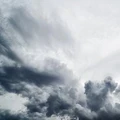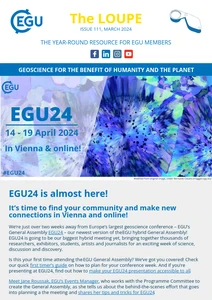President: Heidi Kreibich
(nh@egu.eu)
Deputy President: Ira Didenkulova
(didenkulova@mail.ru)
The Natural Hazards (NH) Division covers all natural hazards that can produce damage to the environment and to the society. Therefore, it is a place where scientists and researchers of various geosciences disciplines meet with sociologists, economists and people responsible for territorial and urban security and planning policies. The aim is to improve the understanding of the evolution of the processes and to discuss new technologies, methods and strategies to mitigate their disastrous effects. The division is structured in eleven subdivisions as follows: Hydro-Meteorological Hazards, Volcanic Hazards, Landslide and Snow Avalanche Hazards, Earthquake Hazards, Sea and Ocean Hazards, Remote Sensing and Hazards, Wildfire Hazards, Environmental, Biological and Natech Hazards, Natural Hazards and Society, Multi-Hazards and Climate Hazards. Most of the topics that are treated in the NH Division are also treated in other EGU divisions, which is expected due to the intrinsic transversal nature of the NH Division.
The NH Division is one of the historical Divisions of the EGU that was established when EGU was founded and has been and is one of the largest divisions to which many geo-scientists provide steadily contributions of papers and ideas over the years.
As for all EGU Divisions, an Early Career Scientist Award is established also for the NH Division and is given to young researchers who obtain outstanding results in the assessment and mitigation of natural hazard. In addition, the NH Division awards the Plinius Medal that recognises outstanding interdisciplinary natural-hazard research and the Soloviev Medal that recognises outstanding scientific contributions in fundamental research on natural hazards. Both medals are open for all career stages.
Recent awardees

- 2024
- Sergey Soloviev Medal
The 2024 Sergey Soloviev Medal is awarded to
Hayley J. Fowler for her remarkable scientific contributions in fundamental research on climate change impacts on rainfall extremes, and applications on flood risks for the improvement of climate resilience.
Read more

The 2024 Plinius Medal is awarded to
Jacopo Selva for his transformative research in quantitative seismic, volcanic and tsunami hazard modelling, leading to relevant applied solutions used in civil protection and emergency management.
Read more

- 2024
- Division Outstanding Early Career Scientist Award
The 2024 Division Outstanding Early Career Scientist Award is awarded to
Marleen C. de Ruiter for her outstanding scientific work on cascading hazards, multi-risk assessment and management.
Read more

The 2023 Plinius Medal is awarded to
Alberto Viglione for seminal contributions to understanding and assessing hydrological extremes.
Read more

- 2023
- Sergey Soloviev Medal
The 2023 Sergey Soloviev Medal is awarded to
Peng Cui for his high-level career in research and applications on debris flows and other mountain hazards, and his leadership on disaster risk reduction in adherence with the Sendai Framework.
Read more

- 2023
- Division Outstanding Early Career Scientist Award
The 2023 Division Outstanding Early Career Scientist Award is awarded to
Ankit Agarwal for his distinguished work in complexity science for better understanding, quantifying and predicting hydroclimatic extremes.
Read more

- 2023
- Outstanding Student and PhD candidate Presentation (OSPP) Award
The 2023 Outstanding Student and PhD candidate Presentation (OSPP) Award is awarded to
Ambra Hyskaj Naturally Occurring Asbestos in the asbestos-free European Union approach. Is asbestos exposure prevention being understood correctly?
Read more

- 2023
- Outstanding Student and PhD candidate Presentation (OSPP) Award
The 2023 Outstanding Student and PhD candidate Presentation (OSPP) Award is awarded to
Sarah Hồ A Comparison of Agriculture-related Characteristics of Flash and Traditional Drought
Read more

- 2023
- Outstanding Student and PhD candidate Presentation (OSPP) Award
The 2023 Outstanding Student and PhD candidate Presentation (OSPP) Award is awarded to
Yuly Paola Rave Bonilla Numerical modelling of the volcanic emissions dispersion from La Soufrière de Guadeloupe
Read more
Latest posts from the NH blog

Ready for EGU24?
Hey there, fellow earth enthusiasts! Are you ready to dive into EGU24? If so, grab your virtual or physical backpacks because we’re about to embark on a journey that’s bound to be as enlightening as it is exhilarating. With its diverse program offering discussions and networking opportunities, EGU24 promises to be an enriching experience. Whether you’re a seasoned participant or a newcomer, preparation is key to maximising your involvement and enjoyment. As a PhD candidate from the Asian continent, I …
Read more

A symphony of uncertainties: exploring the interplay between climate hazards and human societies
Climate hazards are manifestations of the Earth’s complex climatic systems. As natural events, they have always occurred, yet changes in the global climate increase the frequency and intensity of extremes and their impact on the built environment and people. Predicting the nature, scale, and location of climate hazards and their complex interplays with anthropogenic factors is not a straightforward process, and requires understanding and managing several uncertainties. Let us explore some characteristics that determine this ‘symphony of uncertainties’, investigating the …
Read more

How can you contribute to Science-Based policy-making? Ask the new Policy Officer in the Natural Hazards Division!
The EGU Natural Hazards Division now has a new Policy Officer to help promote evidence-based policy-making and support members of the Division in participating in policy-making processes. The Policy Officer aims to bridge between the Division and the EGU Science for Policy Working Group, helping to ensure that evidence-based decisions are made in the policy-making processes related to our areas of expertise. So here I am, the new Policy Officer for the Natural Hazards Division. My name is Antonella Peresan, …
Read more
Current issue of the EGU newsletter













